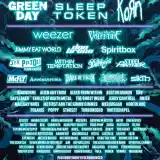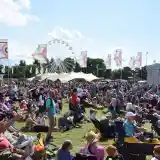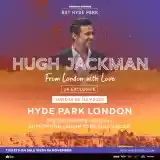
Glastonbury Festival 2011
Wednesday 22nd to Sunday 26th June 2011Worthy Farm, Pilton, Shepton Mallet, Somerset, BA4 4AZ, England MAP
£195 - SOLD OUT
Daily capacity: 175,000
There's been a lot of criticism by those who failed to get Glastonbury Festival tickets on Sunday, saying that the system was unfair, and the Festival has acknowledged that there were issues with the ticket sale but how unfair was it really? We try to get to the bottom of things...
Registration/Touting
Firstly, it should be remembered out that the registration scheme that Glastonbury have introduced has improved things massively. All of the tickets now go to genuine buyers, with touts just about cut out of the process.
Glastonbury is the only festival operating a registration scheme. They've set this system up for the benefit of their genuine customers, while other festivals ultimately only care about selling the tickets but not who they're sold to and touting remains rife for those other too-popular festivals.
While a handful of tickets are still perhaps touted, potential buyers of any touted tickets should be aware that having a ticket does not guarantee them entry if you arrive with a ticket that has someone else's face printed on it, there's a good chance you'll be refused entry and the ticket confiscated. It's not a chance we'd take.
Please note: See Tickets is the ONLY official retailer of Glastonbury tickets and tickets cannot be re-sold by individuals or agencies.
The ticket agent's server capacity.
An obvious 'flaw' is that the ticket agent's servers can't cope with the demand for tickets.
Yet with a 'normal' retail business, if their demand increases their sales and so profit does too. They can source more stock to meet the demand, and with the extra profits those sales bring they can afford to upgrade their systems to cope with the extra demand.
Unlike other retail businesses, a ticket agent doesn't make extra profit when the demand increases. They have a fixed number of tickets to sell with a fixed profit for those fixed numbers it makes no difference whether 200,000 people are trying to buy or one million.
Because a ticket agent has neither the extra profit with which to increase server capacity, nor financial motivation to do so, it will probably be the case that all ticket agents will never be able to properly cope with extreme demand, although things will no doubt improve (as they already have done) as the years go by.
More ticket agents?
Would selling the tickets through more ticket agents make any difference?
Very little, and perhaps none because each person attempting to buy would be trying to buy from all of the agents with tickets it would simply mean that all of those agents failed to cope with demand, and there would be little or no improvement for buyers.
There would however be extra costs. Each agent would need to build a custom system to work with Glastonbury's registration database, and the costs of those systems would end up in the ticket price making the festival more expensive.
Queuing?
One definite issue on Sunday was the page that said the buyer was in a 'queue' yet the belief is that this was not a genuine queue, but merely a refresh system that gave all people an equal random chance of progressing from that page to the buying page. Calling a system like that a 'queue' was misleading and shouldn't be repeated.
Would a real queuing system be any better? We doubt it. At the precise moment tickets went on sale, every buyer would join the queue and with an estimate of around 750,000 people trying to buy on Sunday, the 600,000 or so who lost out wouldn't feel any better about losing out than they do right now, and they would probably doubt that they had been beaten into that queue, leading to further complaints.
Time to sell out
The sale on Sunday took around 4 hours until all tickets were sold. Would things have been better if tickets had sold more slowly or more quickly?
A longer sale time would have those who failed to get tickets feeling unhappy at the wasted hours. 4 hours is probably about the maximum time that people will reasonably tolerate for the tickets to sell.
Our take is that a much quicker sell-out would lead to more complaints and not less, with people complaining that they didn't get a fair chance at getting tickets with them gone so quickly.
Greater effort increases your chances
A real queuing system would give all buyers an equal chance. But are all buyers equal?
It's definitely the case that some people are more keen to go to Glastonbury than others, who don't much care if they go or not. While we don't feel that those "don't much care" people should be excluded completely, we do feel it's right that those who are most keen to go are rewarded with an increased chance of getting tickets.
Because the sale was over 4 hours, it gave those people who spent all four hours trying to buy a greater chance of success on average than those who tried for just five minutes. This, we feel, is a good thing.
If the tickets were sold in a quicker time, or if a genuine queuing system were used, then many more of those "don't much care" buyers would succeed at getting tickets at the expense of the more keen.
8 tickets per transaction
Some people have said that they felt allowing 8 tickets to be bought in each transaction was too many.
However, because of the registration scheme, it should be the case that anyone buying 8 tickets in one go was buying tickets for genuine buyers rather than the tickets being bought by touts.
Along with that, larger families or groups of friends up-to 8 people have the chance to get all of the tickets they need. It avoids families perhaps having to leave one member behind, or groups of friends feeling upset that one of their number couldn't be with them.
While the Festival has yet to collate the numbers from this year, we've been told that in previous years there has only been a small proportion of orders where eight tickets have been bought in one transaction, which suggests that allowing eight tickets to be bought in one go is not really an issue.
Repeat transactions
Once a buyer had got to the buying page, there was an option for them to click a link to make a further transaction and which allowed people to go around the buying process again and again and again if they wanted to. This is the major gripe from this year's sale.
This feature of the buying process had some people who reached the buying page contacting other groups of friends and making their purchases for them and while they were doing this it was causing others to be locked out of being able to buy because their possible place was taken by these repeat buyers.
We don't think any finger of blame should be pointed at those buyers after all, it's an opportunity most of us (if not all of us) would take to get our tickets if it was available to us. The fault here was with the system which allowed this to happen.
It would be far better in future if those buying tickets had just one chance of buying tickets before they had to return to the start of the process, and by doing so opened up that chance to buy to others.
eFestivals has already raised this issue with both See Tickets and with the person in charge of ticketing for the Festival. We very much hope that they take this on board and change this for future ticket sales.
Alternative methods of selling?
Would changing to a different - not online - method of selling improve things?
It's been suggested by some people that perhaps tickets should be sold over the counter in record shops, as used to happen in the past.
However, such a system would have its own in-built problems, the main one being that tickets might sell out in your town while still being available in a town perhaps hundreds of miles away. This, we feel, would be more unequal than what we already have.
Unhappiness
While the system wasn't as perfect as it might be, there can never be a system which can sell a limited number of tickets to a greater number of buyers and so some people will always lose out.
And those people who lose out will always be unhappy at losing out.
Ultimately, their unhappiness comes from missing out on their ticket rather than from the method of sale which caused them to miss out.
Conclusion
There is no perfect system for selling tickets where demand outstrips supply.
Glastonbury Festival have done an awful lot to improve things for buyers, and things are much better for buyers of Glastonbury tickets than they are for other over-subscribed festivals. We wouldn't like to see things revert to how they used to be.
In our opinion, the system already in place is near the best it can get, though the suggestions mentioned above would improve things a little more.
Of course, it might be the case that Glastonbury will reject these ideas for their own good reasons - after all, as the ticket sellers they are looking at things from a different perspective to buyers.
But whichever system they might choose to use in future will never remove the unhappiness people feel when they fail to get their ticket. Some people will always be unhappy with the process as a result.
Resales
For those who weren't lucky on Sunday, the Festival have said that there will be further sales of tickets in the spring of 2011. We'll of course bring you the firm details when they're available.
Feel free to have your say on this article in our Glastonbury Forums.
Latest Updates
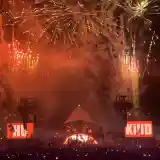 Glastonbury Festival 2025
Glastonbury Festival 2025festival details
last updated: Fri 22nd Nov 2024
 Glastonbury Festival 2025
Glastonbury Festival 2025line-ups & rumours
last updated: Fri 22nd Nov 2024
 Glastonbury Festival
Glastonbury Festivalfestival home page
last updated: Fri 11th Oct 2024
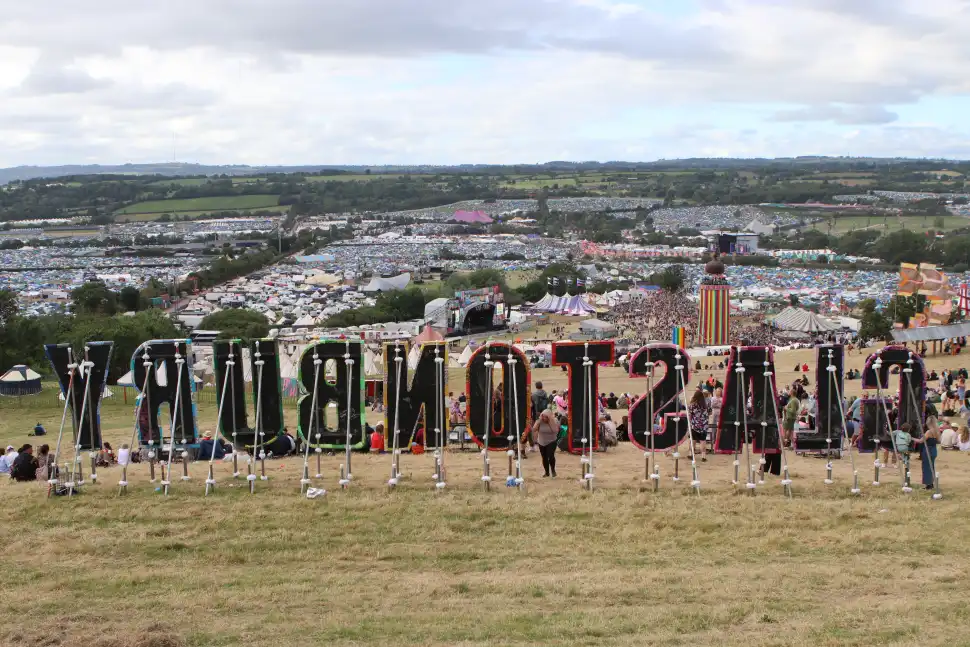 Glastonbury Announces Ticket Sale Dates For 2025 Festival
Glastonbury Announces Ticket Sale Dates For 2025 FestivalTickets will go on sale mid-November, with small price increase
last updated: Fri 11th Oct 2024
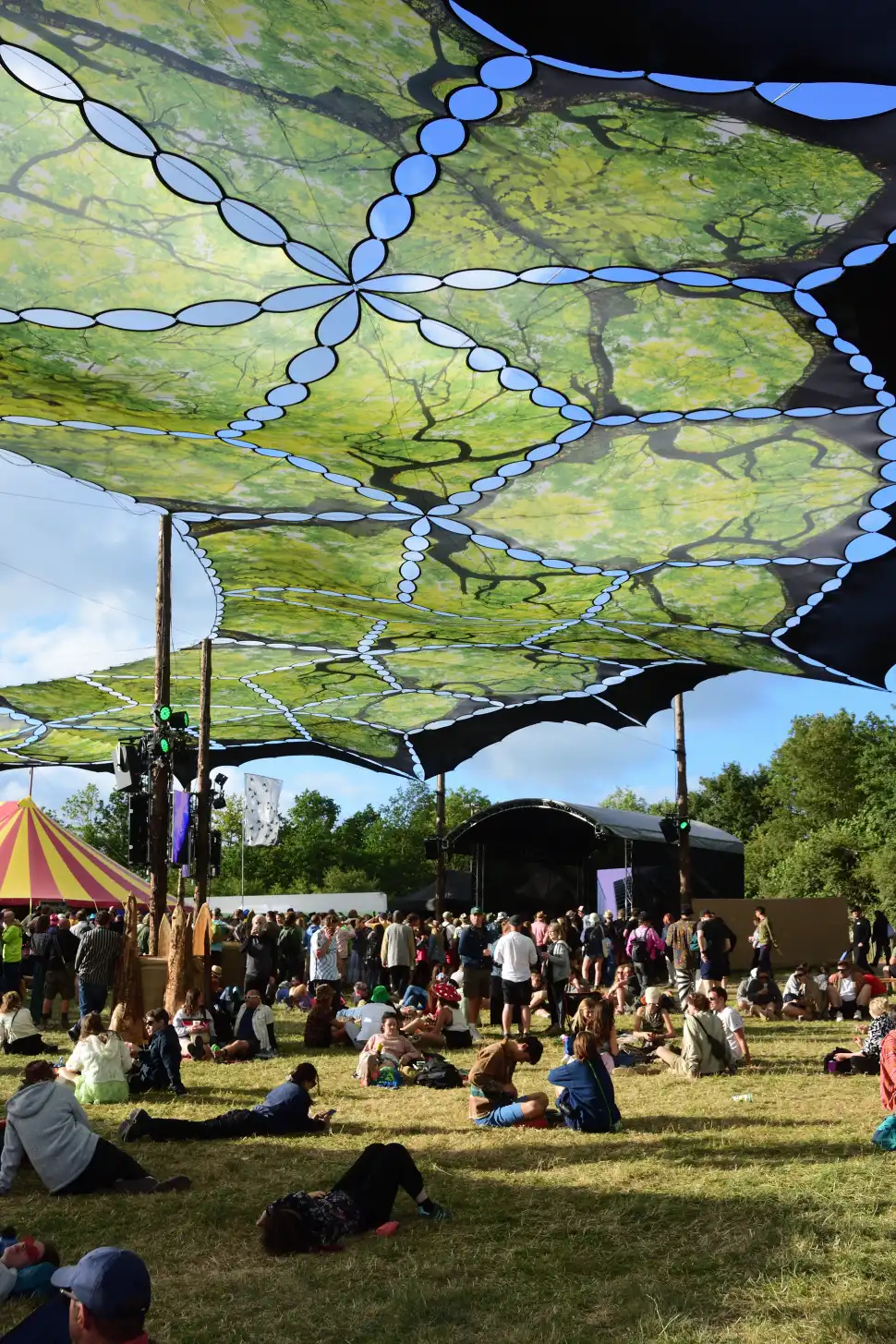 Glastonbury Festival 2024 small stages Review
Glastonbury Festival 2024 small stages ReviewGlastonbury - the Other Side of the Tracks
last updated: Wed 10th Jul 2024


